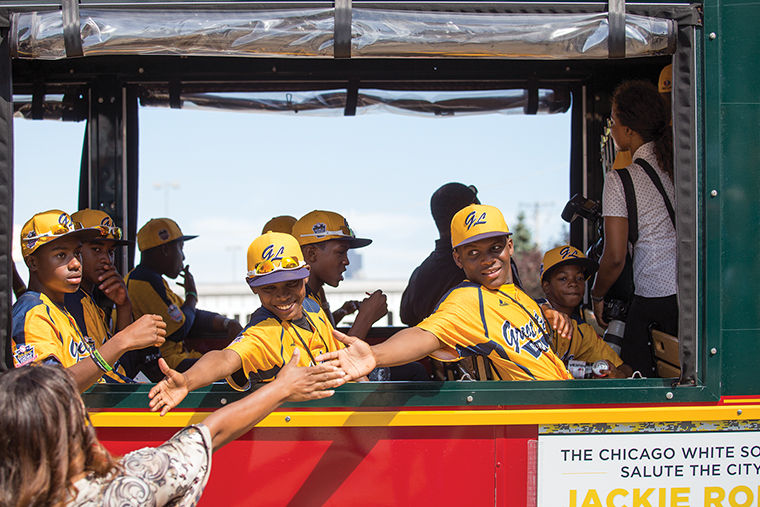Return of the Champions
Return of the Champions
September 8, 2014
Residents of a Chicago community often plagued by violence have found pride in its Little League team, Jackie Robinson West.
Based on the South Side, the team recently gained fame when it won the U.S. championship game Aug. 23, defeating Nevada 7–5 and advancing to the world championship, where it lost against South Korea’s Seoul Little League team.
The team has also gained attention for the issues its team members faced, including homelessness, poverty and unemployment. Chicago residents have embraced the returning players through donations, job offers and homes offered to the families, highlighting the city’s response to the team and showcasing the coming together of the South Side community, something many find inspiring.
Beverly Sandifer, South Side native, said she has been cheering on the Jackie Robinson West Little League team for 30 years. To her, the baseball team is like family, particularly since her own family has been involved with the team for three generations. Sandifer’s brother, sons and grandson have all been on the roster, going as far back as 1983, she said.
“I’m proud [they] made it as far as they did, ” Sandifer said. “They’re champions and good things come out of [these] neighborhoods.”
Sandifer said she is glad the city is able to see a more positive representation of young African-American boys from the South Side than the stereotypes that are portrayed.
“I’m glad Chicago has finally gotten behind them and understands that there’s other things little boys do than fight and create problems,” Sandifer said.
Marcus Spencer, Chicago Urban League senior project leader, said seeing the team win the U.S. championship showed that young African-American males can do anything they put their minds to.
“It held a very special place in my heart to see young African-American men excel to that platform,” Spencer said. “Growing up as an African-American man in Chicago, we didn’t see too many African-American males playing baseball. I thought it was wonderful, it was great, it was exciting.”
Joseph Bradley, a housing case manager who provides housing to homeless adults on the South and West sides, said baseball is an effective solution to curbing gang violence. He said he hopes the community rallies together and helps to keep the team’s members safe.
“I was amazed to see that these little guys were so disciplined, especially being an African-American team in a city that is known for gang activity, violence [and] shootings,” Bradley said. “These kids should be left alone. They did something outstanding. Let them live the rest of their lives accordingly.”
He said the community should stand behind the Jackie Robinson West team and shield them from violence and gang activity.
More significantly, the team acquired fans across the city’s historically segregated neighborhoods, bringing Chicagoans together with their youth, energy and positivity, Bradley said.
“This has brought so many people together,” Bradley said. “I didn’t expect to see all [of] them white folks out there, but they were there, and they were there to root on a Chicago team.”
Gloria Jenkins, a retired Chicago Public Schools teacher who lived on the same block as the team’s founder, Joseph Haley, said she is thrilled the team has been able to unite the South Side community and the city of Chicago as a whole.
“The outpouring of support has been tremendous,” Jenkins said. “Everyone has come out to support them, and we’re so excited they brought the city together.”
The Jackie Robinson West team is important to young African-American boys and communities that struggle with gangs, violence and high dropout rates, according to Jenkins.
“They have dispelled rumors and myths about what young black African-American men can do,” Jenkins said. “They have brought the whole city together of all different ethnic groups, and I think they’ve done a great job.”
Marsalis Embrey, a 14-year-old West Side resident, said he sees kids his age involved with gangs all the time, but the Jackie Robinson West team proves that not all black kids are gang members.
He said stereotypes surrounding African-American youth on the South and West side are inaccurate and the team helps dispel them.
“I always think the Jackie Robinson [West] team brings a positive impact on other kids,” Embrey said. “The Jackie Robinson [West] team shows black people, as a whole, can do more than just gang bang [and shoot people.”








